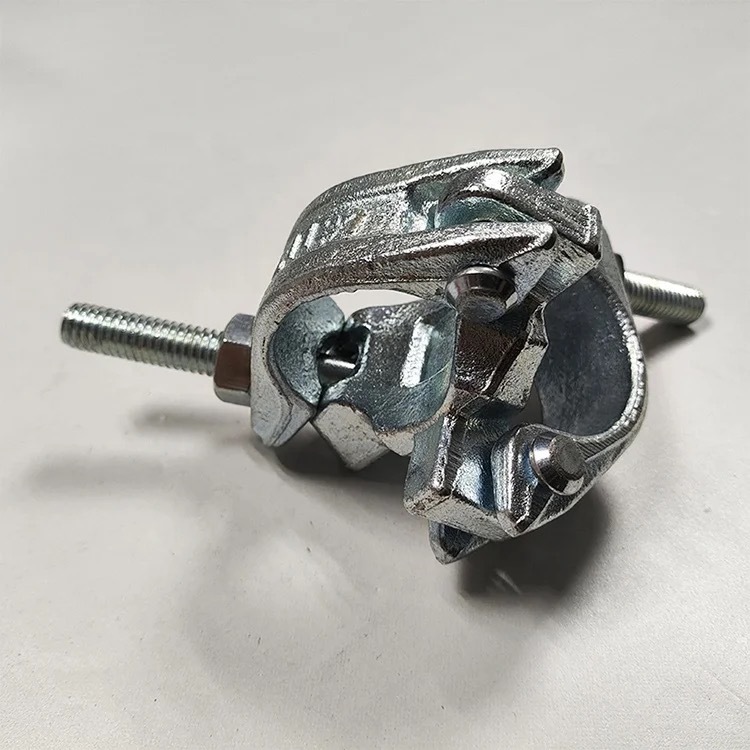Galvanized Forged Fastener Couplers vs. Traditional Fasteners: Which is Better?
Galvanized Forged Fastener Couplers vs. Traditional Fasteners: Which is Better? Table of Contents 1. Introduction to Fasteners 2. Understanding Galvanized Forged Fastener Couplers 2.1 What are Galvanized Forged Fastener Couplers? 2.2 Advantages of Galvanized Forged Fastener Couplers 3. Exploring Traditional Fasteners 3.1 What are Traditional Fasteners? 3.2 Advantages of Traditional Fasteners 4. Co

Galvanized Forged Fastener Couplers vs. Traditional Fasteners: Which is Better?
Table of Contents
1. Introduction to Fasteners
2. Understanding Galvanized Forged Fastener Couplers
2.1 What are Galvanized Forged Fastener Couplers?
2.2 Advantages of Galvanized Forged Fastener Couplers
3. Exploring Traditional Fasteners
3.1 What are Traditional Fasteners?
3.2 Advantages of Traditional Fasteners
4. Comparing Strength and Durability
4.1 Material Composition
4.2 Performance Under Stress
5. Corrosion Resistance: A Key Factor
5.1 How Galvanization Works
5.2 Corrosion Resistance of Traditional Fasteners
6. Application Suitability
6.1 Ideal Applications for Galvanized Fastener Couplers
6.2 When to Use Traditional Fasteners
7. Cost Analysis: Galvanized vs. Traditional
7.1 Upfront Costs of Fasteners
7.2 Long-term Value Consideration
8. Frequently Asked Questions (FAQs)
9. Conclusion
1. Introduction to Fasteners
Fasteners are essential components in various industries, providing the necessary strength and stability in assembling structures and machinery. Their performance and durability can significantly impact the overall quality of a project. Among the myriad options available, galvanized forged fastener couplers and traditional fasteners stand out. This article delves into their differences to help you determine which is best suited for your specific needs.
2. Understanding Galvanized Forged Fastener Couplers
2.1 What are Galvanized Forged Fastener Couplers?
Galvanized forged fastener couplers are high-strength components made through a forging process, followed by a galvanization treatment. This process enhances their robustness and provides a protective layer against corrosion. These fasteners are commonly utilized in construction, heavy machinery, and other sectors requiring reliable connections.
2.2 Advantages of Galvanized Forged Fastener Couplers
The benefits of using galvanized forged fastener couplers include:
- **Superior Strength**: The forging process significantly increases tensile strength, making them ideal for heavy-duty applications.
- **Corrosion Resistance**: The galvanization process protects against moisture and environmental factors, extending the life of the fastener.
- **Versatility**: They are suitable for various applications, from construction to automotive industries.
3. Exploring Traditional Fasteners
3.1 What are Traditional Fasteners?
Traditional fasteners, including nuts, bolts, and screws, are manufactured through standard processes like machining or casting. These fasteners can be made from various materials such as steel, aluminum, and plastic, depending on the application requirements.
3.2 Advantages of Traditional Fasteners
Traditional fasteners offer several benefits:
- **Wide Availability**: They are readily available in multiple types and sizes, making them easy to source.
- **Lower Initial Costs**: Generally, traditional fasteners are less expensive than their galvanized counterparts.
- **Simplicity**: They are easier to install and replace, making them a convenient choice for many applications.
4. Comparing Strength and Durability
4.1 Material Composition
The strength of fasteners is largely determined by their material composition. Galvanized forged fastener couplers often use high-grade steel, which, combined with the forging process, results in enhanced durability compared to traditional fasteners that may utilize lower-grade materials.
4.2 Performance Under Stress
When subjected to stress conditions, galvanized forged fastener couplers have shown superior performance. Their robust design allows them to withstand higher loads without deforming or failing, making them preferable for applications where safety is paramount.
5. Corrosion Resistance: A Key Factor
5.1 How Galvanization Works
Galvanization involves coating the metal with a layer of zinc, which acts as a barrier against moisture and corrosive elements. This protective layer significantly increases the lifespan of the fastener, particularly in outdoor or humid environments.
5.2 Corrosion Resistance of Traditional Fasteners
While traditional fasteners may have some level of corrosion resistance, they often lack the protective coating that galvanization provides. This makes them more susceptible to rust and degradation over time, especially in challenging environmental conditions.
6. Application Suitability
6.1 Ideal Applications for Galvanized Fastener Couplers
Galvanized forged fastener couplers are ideal for:
- **Construction Projects**: Providing secure connections in structural applications.
- **Marine Environments**: Their corrosion resistance makes them suitable for use near water.
- **Heavy Machinery**: Their strength is essential in applications that bear significant loads.
6.2 When to Use Traditional Fasteners
Traditional fasteners may be more suited for:
- **Indoor Applications**: Where environmental factors are minimal.
- **Light-duty Projects**: Where high strength is not a critical requirement.
- **Budget-sensitive Projects**: Traditional options can be more cost-effective for small-scale applications.
7. Cost Analysis: Galvanized vs. Traditional
7.1 Upfront Costs of Fasteners
Typically, traditional fasteners have lower upfront costs compared to galvanized forged fasteners. This can be advantageous for projects where the budget is a primary concern.
7.2 Long-term Value Consideration
While galvanized fasteners may require a higher initial investment, their durability and corrosion resistance can lead to lower maintenance costs and extended service life. This long-term value can make them more economical in the long run.
8. Frequently Asked Questions (FAQs)
1. What are the main differences between galvanized fastener couplers and traditional fasteners?
The primary differences lie in their manufacturing process, strength, corrosion resistance, and application suitability.
2. Are galvanized fastener couplers more expensive than traditional fasteners?
Yes, they generally have a higher upfront cost due to the forging and galvanization processes.
3. In what environments are galvanized fastener couplers recommended?
They are ideal for outdoor applications or areas prone to moisture and corrosion.
4. Can traditional fasteners be used in outdoor applications?
While they can be used outdoors, traditional fasteners are more susceptible to rust and may require additional protective coatings.
5. How do I choose the right fastener for my project?
Consider factors such as load requirements, environmental conditions, and budget when selecting a fastener.
9. Conclusion
In the debate between galvanized forged fastener couplers and traditional fasteners, the choice ultimately depends on specific project requirements. Galvanized fastener couplers offer superior strength, durability, and corrosion resistance, making them ideal for demanding applications. On the other hand, traditional fasteners provide a cost-effective solution for less critical uses. Understanding the unique benefits of each option will empower you to make the best decision for your industrial equipment and components.
Key words:
PREVIOUS:
PRODUCT SEARCH
Search And Quickly Find The Products You Need
With advantages in technology, quality, and service, the company is steadily advancing in the industry, continuously providing high-quality hydraulic rubber products and services to global customers, demonstrating strong development potential and broad market prospects.









